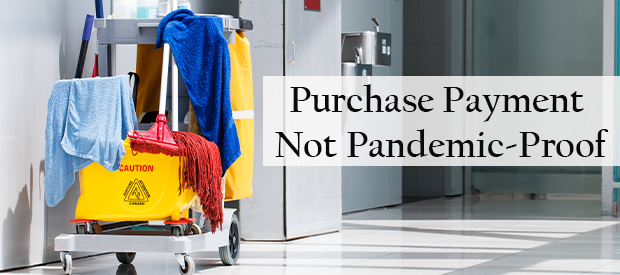Franchise 101: Court Hits Brakes on Former Franchisees; and Pandemic No Excuse for Non-Payment

Franchisor 101: Court Hits Brakes on Former Franchisees
An Ohio appellate court upheld the state trial court’s decision to grant a permanent injunction against two former franchisees of an auto body shop franchise working for a competitor in violation of the franchise agreement’s covenants not to compete and confidentiality provision.
Franchisor licenses the brand Tuffy Auto Service Centers and granted a franchise in Orlando, Florida to a franchisee consisting of multiple owners. The franchise owners got in an internal dispute resulting in two of the owners leaving the partnership. These franchisees then began work with a competitor. When Franchisor learned they were working with a competitor it filed a complaint alleging that the former franchisees were breaching the non-competition and confidentiality provisions of the franchise agreement and sought a preliminary injunction to be made permanent at trial to enjoin them from working for a competitor for two years.
The former franchisees admitted that they were signatories to the franchise agreement which prohibited them from working for a competitor within five miles of their business for two years. However, they argued that injunctive relief should not be granted because there was no irreparable harm from their working for a competitor and they denied having any confidential information or trade secrets from Franchisor, only general automotive knowledge from decades of experience in the industry. The court granted a permanent injunction in favor of Franchisor finding that the former franchisees breached the terms of the non-compete and confidentiality provision that were fair and reasonable under Ohio law.
The primary issue on appeal was whether or not Franchisor showed evidence of an actual threat of sufficient harm to prove irreparable injury, one the elements needed for a permanent injunction. Evidence showed the former franchisees received initial and continuing training from Franchisor, which included proprietary information developed by Franchisor over five decades. The court concluded this proved the former franchisees had trade secrets. In addition to providing trade secrets to a competitor, Franchisor claimed it was harmed by documented complaints from other franchisees about the former franchisees working for a competitor. Franchisor alleged this could also damage the brand by making it harder to attract new franchisees and to enforce the non-compete and confidentiality provisions against other franchisees in the system. Thus, the court found sufficient evidence to uphold the permanent injunction.
Franchisors should consult franchise counsel to ensure non-compete provisions are enforceable under applicable state law. These provisions are essential to protect the franchise system in cases where former franchisees try to compete using franchisors proprietary information, which can cause a multitude of potential harms.
Gimex Properties Corp., Inc. v. Reed, Ohio App. (Dec. 29, 2022)

Franchisee 101: Pandemic No Excuse for Non-Payment
The Massachusetts Supreme Judicial Court granted summary judgment in favor of the seller of a janitorial service franchise based on claims by the buyers that the COVID-19 pandemic excused their obligation to pay the seller the remainder of the purchase price for the franchised business. The trial court previously granted summary judgment in favor of the seller and denied a motion for reconsideration. The buyers appealed and the state Supreme Court transferred the case from the Appellate Court.
The terms of the 2015 purchase agreement included a promissory note in favor of the seller for the reminder of the purchase price. The initial note required a balloon payment in 2018 with a clause that permitted a $15,000 credit against the note if the franchise sales fell below a certain amount for the first six months after the sale. The buyers requested an extension of the note in 2018 to make the final balloon payment in 2022. This amended note made the buyers jointly and severally liable and provided for several events of default that triggered accelerated payment and late fees. The buyers failed to make an installment payment in 2020 during the pandemic and the seller’s counsel sent a notice of breach and demanded accelerated payment. The seller then filed suit and moved for summary judgment based on the default of the amended note.
The buyers argued impracticability of performance and frustration of purpose due to the pandemic. The buyers claimed that the pandemic’s effect on their franchise business’ revenue prevented them from making the payment due under the note. Because the buyers were jointly and severally liable for the payments, the court found that the effect of the pandemic on their business did not address their personal obligation to pay the seller. The court recognized that the pandemic likely had a negative effect on both the business and personal financial condition of the buyers, but this added difficulty of performance on the note did not amount to impracticability.
Next the court held the record did not show that when the contract was entered into the non-occurrence of a pandemic was an essential assumption of the contract. The financial condition of the franchise business was only at a factor for the first six months post-sale when there was a credit available to the buyers. In contrast, after the amended note, the change in the financial condition of the business and buyers personally, among other events, could cause a default. There was also no force majeure clause in the amended note.
As to frustration of purpose, the court found there was no evidence that the purpose of the contract was for the buyers pay the amounts owed from the note solely from the revenue of the sold business. The only repayment condition tied to the business revenue expired after the first six months. The court was also reluctant to re-write the contract when there was no evidence of duress or predatory behavior by the seller.
Franchisees looking to buy or sell their franchises should seek the advice of franchise counsel to negotiate the deal terms. Although the pandemic was not foreseeable, including a force majeure clause to a promissory note that contains joint and several liability might have protected the buyers from defaulting on their note and triggering accelerated payments and late fees.
Le Fort Enterprises, Inc. v. Lantern 18, LLC, Mass. Sup. Ct. (Jan. 3, 2023)